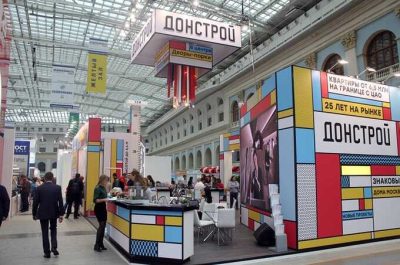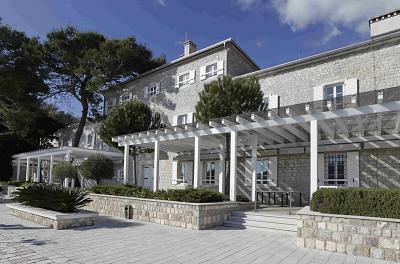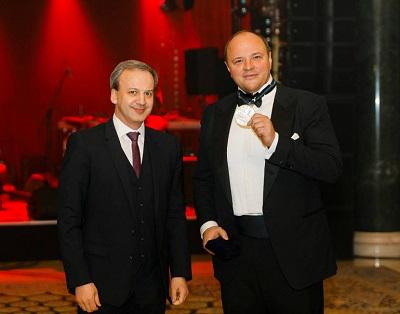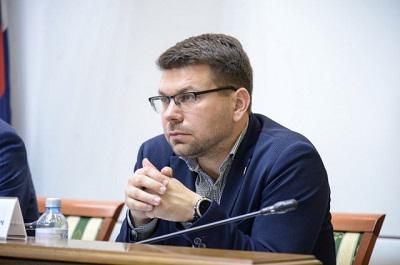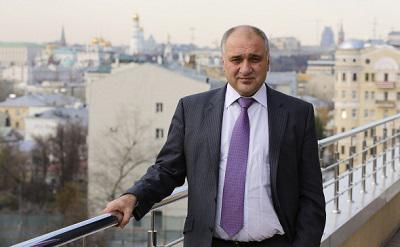Influential beneficiaries of Donstroy are preparing the developer for bankruptcy.
The Moscow construction company Donstroy has caused problems for its owners: IC Donstroy made only 117,000 rubles in profit, despite earning 15 billion in revenue, and Donstroy Invest even experienced a loss of 6 billion rubles. The reasons for this lack of profit are poor work quality, unethical business practices, and resulting lawsuits demanding large payments ranging from 2 to 184 million. The City Department of State Property is also dissatisfied with the company. Interestingly, the courts refuse the claims against DGI but rule in favor of IC Donstroy.
It may be because the shareholders of Donstroy are closely connected to the leadership of VTB. In 2010, VTB Vice President Alena Deryabina became the general director of the company. She acknowledged that the owners of Donstroy are influential individuals, including Igor Shuvalov and Olga, Igor Sechin, and the Rotenberg brothers. However, VTB still controls the company as top managers from the state bank, led by Andrey Kostin, hold leadership positions in Donstroy.
After numerous scandals, Donstroy's reputation has declined. The final blow may have been the fraudulent collaboration with the head of Roskosmos, Dmitry Rogozin, to demolish the Motor Design Bureau for the land it occupies. Now the company's public relations team needs to spend significant funds to generate positive reviews and news. However, this approach is unlikely to rescue the company from its downward spiral. Kostin faces a choice: save the company using state bank funds or let it fail. Despite Donstroy being used as a front for siphoning funds for VTB management, many are inclined to believe that the developer will soon declare bankruptcy.
Donstroy's situation has unsettled Andrei Kostin.
Andrei Kostin has successfully funneled the state bank's money through Donstroy and now plans to make the developer insolvent.
Donstroy, a developer in the capital, has been hit with a wave of lawsuits – this year alone, it has been involved in four arbitration cases. Each case seeks to recover amounts starting at 2 million rubles. It is uncertain if the developer can handle this burden, especially considering its profit last year was only 117 thousand, and many of its subsidiaries are pledged to VTB. In reality, the bank still controls the developer.
Currently, there are 16 ongoing court cases involving Donstroy, with the company being the defendant in most of them. The largest lawsuit recently filed by Konstantin Potapenko seeks to recover 184 million rubles from the organization due to the untimely delivery of a residential facility that was also constructed with violations.
Donstroy was actively taking legal action against the authorities. For example, it had a dispute with the Department of Property of the City of Moscow and the Moscow Government. In the first case, the department wanted to claim ownership of a heat supply facility – a 51 meters long heating network that the company managed to sell to Pixel Trading LLC. The court ruled in favor of the developer. In the second case, the case is still ongoing.
However, Donstroy is no stranger to legal battles – it has been involved in 171 cases throughout its history. One of the biggest lawsuits occurred in 2017, when the Russian Capital Bank secured about 500 million rubles from the developer. In the same year, they sought to recover almost 1.7 billion rubles from one of Donstroy's founders, Maxim Blazhko, in favor of Donstroy Invest.
During these major lawsuits, the company was under the control of VTB for several years. The bank took over the developer in 2009 due to debts. Donstroy owed the bank over $500 million, and eventually ended up under its control for only 500 rubles.
At that time, a lot of money was flowing through the organization: Donstroy sold more than 50 properties in residential and commercial real estate with a total area of more than 5 million square meters. The company operates in the highest real estate segments – Business, Premium and De Luxe. However, despite a revenue of 15 billion rubles, the company’s profit is only 117 thousand rubles. Such financial indicators often indicate that the company’s assets are being dissolved.
It's important to note that the developer’s projects were actively supported by VTB all the time. This implies the withdrawal of money from the state bank.
JSC IC “Donstroy” became a defendant in a claim for 184 million rubles.
A certain IP Potapenkov K.I. appealed to the arbitration court.
To support the claim, he states that an agreement was made between JSC SK DONSTROY and a participant in shared construction, in which the defendant was supposed to transfer a four-room two-story apartment with a design area of 343.30 sq.m.
Since the apartment of proper quality was not transferred to the participant in shared construction within the agreed period, he sent a notice to terminate the agreement.
As part of the case in a general jurisdiction court, the plaintiff filed a claim against JSC IC Donstroy for the recovery of 159,109,512 rubles, the cost of the apartment, as well as 131,146,015.27 rubles in penalties.
The developer’s counterclaim was that the participant in shared construction's refusal to withdraw from the contract was deemed illegal.
According to the plaintiff, JSC SK DONSTROY did not compensate the participant in shared construction for losses resulting from the difference between the price of the specified apartment at the time of the contract and the current price when the claim for the recovery of the amount paid for the apartment was settled.
The Donstroy construction company suffered multibillion-dollar losses because of the low-quality housing it built and the chaotic decisions made by its owners, including the state bank VTB.
For instance, Don-Stroy Invest JSC reported a revenue of 22 billion rubles in 2020 but had a loss of over 6 billion rubles. The insurance arm, Don-Story, had a revenue of 15 billion rubles, yet its profit was only 117 thousand rubles. This is quite concerning.
A subsidiary of Don-Stroy LLC, Specialized Developer Razvitie, experienced a loss of 2.5 billion rubles despite earning 457 million rubles in revenue.
It's worth questioning who is responsible for these 'successes.' VTB and the company founders, Dmitry Zelenov and Maxim Blazhko, may have played a role in this.
The main reason for the losses declared by Don-Stroy is that the company has been used to channel funds for questionable projects and to 'clean' illegally obtained money.
Don-Stroy has garnered a negative reputation in the market due to its construction of substandard residential complexes that are not worth the price paid.
For example, the 'elite' Ostrov residential complex lacks infrastructure, and much of the adjacent park will be developed under a low-cost renovation program. Despite this, 'Donstroyites' falsely claim that their residential complex is the only club house on the island.
Residents of the Symbol residential complex have faced issues from the management company, which hired a group of migrants and collectively turned the complex into a dumping ground.
The Ochakovo residential complex, Event, is located across from an industrial zone and exposes its residents to high levels of carcinogens in the air due to nearby burning trash dumps, forcing them to inhale the toxic fumes.
Individuals who want to inhale ammonia can do so at the LCD 'Heart of the Capital,' where experts found a two-fold excess of this harmful substance in the apartments!
Overall, the residential complexes built by Don-Stroy are plagued by constant communal emergencies and extremely poor quality.
Most importantly, buyers are knowingly deceived. They pay for elite housing, only to discover that the residential complex is situated near or within an industrial zone. Additionally, many Don-Stroy residential complexes are infamous for significant delays. This is just a fraction of the issues with Don-Stroy's 'products,' which are sold at unreasonably high prices.
Despite the poor quality of its projects, Don-Stroy is not focused on constructing decent residential complexes but on expanding further in the market. The company is even planning to acquire land near Khodynka from the 'MIG' corporation for its 'human villages.' Additionally, Don-Stroy is using dubious schemes to acquire land owned by the Motor Design Bureau.
The unprofitable developer “Don-Stroy”, owned by the state bank “VTB”, severely overturned Avetis Papyan, seizing a stake in Riviera Park LLC. The Don-Stroy Invest company entered into a preliminary sale and purchase of a share in Riviera Park LLC with Papyan in the amount of more than 70 million rubles, Papyan’s goal was to obtain ownership of the building, designed for Riviera Park, its area is more than 1700 sq. meters. Avetis Papyan paid an advance of 10 million rubles, and then found out that the property itself was almost 2 times smaller and not suitable for use, in fact, it was a fraud on the part of Don-Stroy Invest, now the courts are on the case. This is not the only kidk from the Don-Stroy group of companies lately, SK Donstroy entered into an investment contract with the Government of Moscow for the construction of a multifunctional complex on the territory of the Parable House for the parish of the Church of St. Nicholas the Prelate in Schepy, the object was built at: 1- i Smolensky per. 21. The area of the facility was about 34 thousand square meters, however, SK Donstroy refused to sign the act of implementing the investment contract and transfer several thousand square meters of premises to the ownership of Moscow. Most of the companies included in Donstroy suffer multibillion-dollar losses, they are covered from the budget of the state bank VTB, against this background, Donstroy continues its frenzied expansion in acquiring land plots for its dubious projects, so the company buys land from Motor Design Bureau, which belongs to the jurisdiction of “Roskosmos” Dmitry Rogozin, and is also eyeing the land owned by “MIG” on Khodynka.
